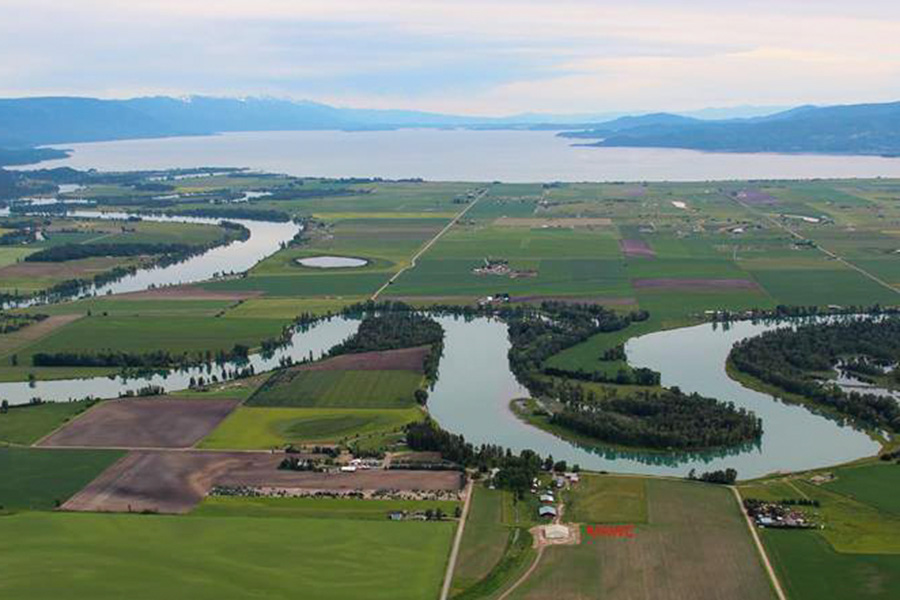Residents concerned about a proposed water bottling plant in Creston are pursuing a countywide ballot initiative to extend a special zoning district that would limit or preclude the development of the bottling site.
The group, Yes! For Farms and Water, assembled in response to permits sought by Lew Weaver, the Creston man interested in turning his farmland into the Montana Artesian Water Company.
Weaver applied for a permit with the Department of Natural Resources and Conservation that would allow his company to produce up to 140,000 water bottles per hour, 24 hours a day, seven days a week. The water right would allow Weaver’s company to receive 710 acre feet of water annually, equaling roughly 1.2 billion 20-ounce water bottles.
In order to qualify the petition for the ballot, the group must gather signatures from 15 percent of registered voters in Flathead County, or 10,067 signatures, by June 27. The petition was certified by the county’s legal department and approved in March, triggering a 90-day signature-gathering window.
Neighbors to the proposed bottling facility have publicly raised concerns, asking the Flathead County Commission to expand the Egan Slough Zoning District to keep all the land agricultural and then suing the county after the commission rejected the zoning expansion.
Local landowners sued the commission after the board rejected the zoning district expansion last year, arguing that the commission didn’t adequately respond to public comment.
If approved by voters, the ballot measure would expand the Egan Slough Zoning District created in 2002 by a petition of local landowners who own property there to protect the rural and agricultural character of the area.
Neighbors like Steve Harvey, a co-founder of the local group, believe expanding the district will help protect themselves from potential impacts to their wells and prevent environmental degradation and loss of property value.
The lawsuit asserts the water-bottling plant could eventually add 200 car and truck trips per day to the rural gravel roads, creating safety concerns and noise and air pollution, and impacting property values. The suit said an expert real estate evaluation placed the total loss of property values at more than $16.6 million for landowners around the plant.
